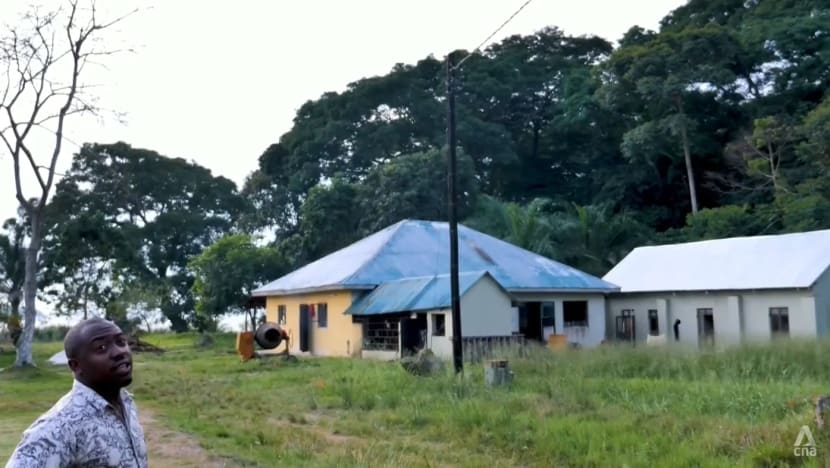Why the US presidential election outcome is growing more crucial for Africa
Climate change has become a major issue on Africans’ minds as their countries’ longtime ally goes to the polls in under two weeks’ time.

Tyson Kagwaie, operations manager of Victoria Forest Resort, at the resort located at Lake Victoria in Uganda.

This audio is generated by an AI tool.
KAMPALA, Uganda: A beachfront resort at Africa’s largest lake in Uganda feels far removed from the United States, which is holding its presidential election in less than two weeks.
However, they are inextricably linked. Victoria Forest Resort runs entirely on solar energy, thanks to US government investment in a solar plant on the islands of Kalangala a decade ago.
With projects like these playing a pivotal role in powering Kalangala’s transition to green energy, resort operations manager Tyson Kagwaie hopes that whoever wins the race to the White House will continue to invest in them.
“(Our resort) really needs to put more effort (into) our power supply and power voltage because we really need to use big freezers. We need cold rooms that can store food for more and more time,” he told CNA.
For Kagwaie and many of his fellow Africans, the result on Nov 5 will be of great consequence, as it may be a turning point in long-time ally US’ commitment to the continent's green transition.
TRUMP SUPPORTIVE OF FOSSIL FUELS
Across Africa, about 600 million people lack access to electricity.
The continent has also borne the brunt of the climate change crisis, with its warming trend more rapid than the global average. These have made the transition to renewable energy an urgent necessity.
According to figures from the United Nations Development Programme, African nations need US$2.8 trillion by 2030 to mitigate climate risks.
The US plays a key role in supporting the continent to this end. Under the current Biden administration, US$100 million in direct loans was issued to support off-grid clean energy infrastructure, which forms part of a much larger slate of climate assistance to the continent.
However, fears have now emerged of these programmes being cancelled should former president – and current Republican candidate – Donald Trump win a second term as president.
Africans never had to worry about the US presidential election outcome before he came along in 2016.
In previous times, regardless of who was in the White House, America generally had a bipartisan consensus towards its policy on Africa. This usually involved development aid, support for good governance and green transition, and preferential trade deals.
Trump has long been sceptical of global warming, having gutted all funding from the United States Agency for International Development for climate programmes in Africa when he was in office.
While on the campaign trail this year, he has made his support for fossil fuels loud and clear, promising to dismantle many of Biden’s green energy policies.
“Those policies that seek to address energy concerns or energy challenges in Africa would be curtailed or wouldn't have the same amount of attention if Donald Trump becomes President, compared to Kamala (Harris) who's a Democrat and naturally believes in addressing climate change across the world, including Africa,” said Etse Sikanku, a senior lecturer and head of the Directorate for Research, Innovations & Development at the Ghana Institute of Journalism.
HARRIS’ STANCE
While Vice President Harris has made climate change part of US foreign policy during her time in office, there are doubts as to whether she will deliver if she is elected as president.
Analysts have noted that under the Biden administration, the US-led response to climate change continued to favour wealthy and developed countries.
This is despite Harris pledging US$3 billion to the United Nations’ Green Climate Fund to help developing countries prepare for global warming.
On the campaign trail, she has also promised to lead the global effort to tackle the climate crisis.
With America becoming a less reliable partner on issues like green technology, economic development and security, African governments have now turned to countries like China, Russia and Turkiye to close the gap.
China, in particular, has played a more dominant role in Africa’s green transition, supporting Kenya and South Africa in building clean energy plants.
As the US election draws closer, Africans hope the global climate crisis is something they hope the next president will do something about.
But it remains to be seen if the outcome will spur a positive reset in relations between Africa and the US – or lead to a greater degree of uncertainty.















